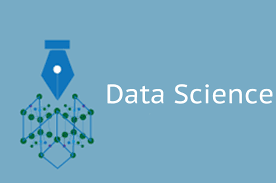Source – forbes.com
University degrees are really, really expensive and there are plenty of new startups in Silicon Valley offering job readiness training for much cheaper. So, how does a $100,000 graduate degree in statistics stack up to an online course for 1/100th the price?
The short answer is that I think for many jobs, an online certificate in data science from a quality online education provider is comparable to a more traditional graduate statistics degree.
For the past year or so, I’ve been sampling various online degree providers, including Udacity, Coursera, DataCamp, and EdX to see how they compare to my (much pricier) Master’s in Mathematical Behavioral Sciences from the University of California, Irvine.
I still have a lot of courses to take and will be doing more reviews in the future, but I think I now have enough experience to draw a few conclusions.
In some ways, online providers are much better than traditional statistics degrees.
For many data science jobs, the vast majority of work is simple data sourcing and cleaning. It’s a laborious task that requires a nuanced understanding of how to combine spreadsheets, find errors in the data and load it up for analysis.
The tools for this kind of data “wrangling” continually get updated with new software and protocols–it’s much less about complex problem solving and more about raw technical knowledge of the field. Udacity and DataCamp are especially good for beginners to learn this technical knowledge without any experience necessary.
Data science runs on many of the same techniques established decades ago: regression models and exploratory analysis.
Regressions are mostly used as a technique for finding how multiple variables correlate with one another and if they are statistically different than pure chance. So, for instance, if I want to know how age and income correlate with a political party, a regression will take into account all the various correlations and spit out a mathematically optimized estimation (for instance, each one year in age may increase the likelihood of voting Republican, holding income constant).
Regression techniques have been used for decades are come in neatly designed package scripts that take little mathematical knowledge to execute. The same is true for exploratory analysis, which looks for patterns in data.
Learning to execute these commands just takes a lot of practice, which both online courses and university programs can provide.
Udacity, Coursera, EdX and DataCamp have all done a good job keeping up-to-date with a wide variety of modeling and exploratory practices.
Graduate degrees are superior for advanced critical thinking
There’s only so far you can go in data science without knowing advanced mathematics and research design.
Without understanding the underlying code of various packages, it’s hard to go beyond the basics. For people who want to do original research, a degree may be worth it.
Or, if you can learn math on your own, Coursera and EdX do have a lot of free online courses from top universities.
But for many, if not most data science jobs, an online course is sufficient. Even with a degree, I still find their content useful.
